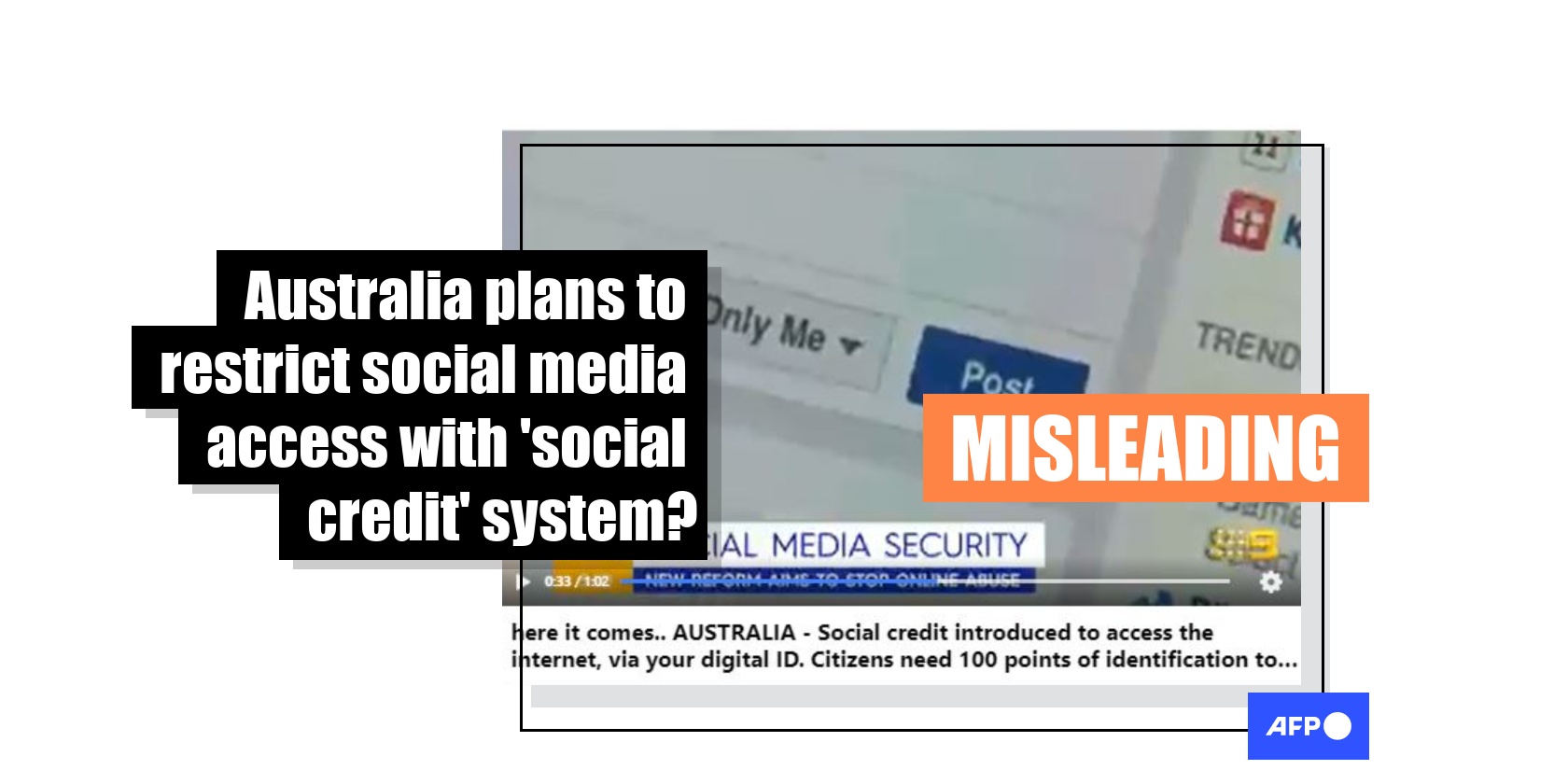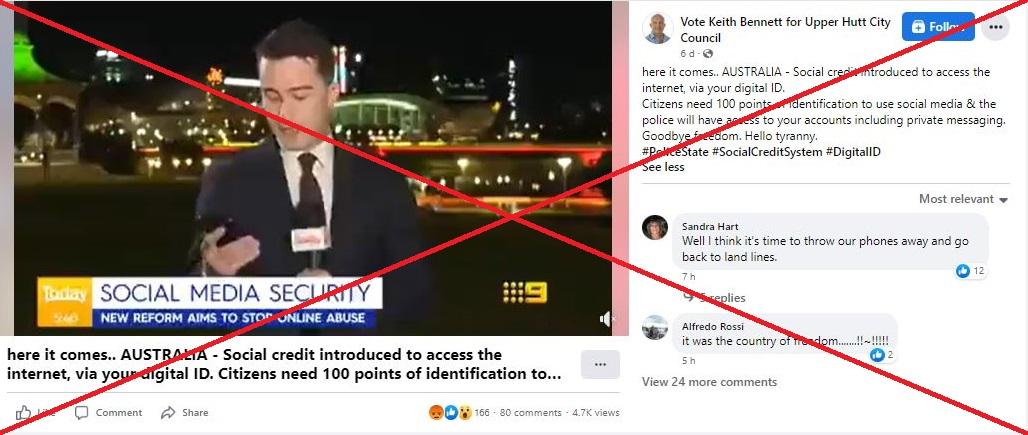
Misleading posts claim Australia plans to restrict social media access with 'social credit' system
- This article is more than three years old.
- Published on December 26, 2022 at 09:09
- 3 min read
- By Alexis ORSINI, AFP France
- Translation and adaptation Johnny LIEU
"AUSTRALIA - Social credit introduced to access the internet, via your digital ID," reads a Facebook post from December 15.
"Citizens need 100 points of identification to use social media & the police will have access to your accounts including private messaging."
"Goodbye freedom. Hello tyranny," it adds.
The video, which was viewed more than 13,000 times, shows a news report from Australia's Channel Nine with a chyron that reads: "New reform aims to stop online abuse".

Similar Facebook posts shared the claim here and here, branding the initiative as "tyranny" and "fascism".
Social credit is a system in China in which data on undesirable behaviour is captured digitally and compiled in a "credit score" that could affect a person's access to various services.
While the Australian government considered requiring social media users to verify their identities to access social media, the idea was never adopted.
Several Australian federal agencies have the power to access private data of social media accounts suspected of criminal activities, but the video was in fact a report on a proposal from 2021 that would require Australians to verify their identity before they can access social media. It did not mention any social credit systems.
Online abuse
The Channel Nine news report shared in misleading Facebook posts was aired on April 1, 2021 when the government considered requiring social media users to provide identification in a bid to crack down on social media abuse.
"It is all part of a plan hoping to deter people from engaging in bad behaviour," reporter Ollie Haig says.
An Australian parliamentary committee proposed that social media users be required to identify themselves "using 100 points of identification".
This refers to a weighted score system that Australian authorities and companies often use to determine whether a person has produced enough documents to prove their identity.
For example, the Australian Federal Police's checklist assigns 70 points to passports, 40 points to driver's licences and 25 points to credit cards and bank statements. The public must produce enough documents so they collectively carry 100 points or more in order to satisfy the requirement.
Haig explains that a social media user's identity would be verified "in the same way as a person must provide identification for a mobile phone account, or to buy a mobile SIM card".
Keyboard warriors beware - a plan to crack down on social media abuse is being considered by the government, with users facing defamation suits and fines for bad behaviour. Users could soon have to submit 100 points of identification, lifting the veil of anonymity. #9Todaypic.twitter.com/EFLPrOTrIC
— The Today Show (@TheTodayShow) April 1, 2021
Former Australian prime minister Scott Morrison's government proposed a draft bill in October 2021 that would require social media companies to take reasonable steps to verify the age of their users.
Samantha Floreani, project manager at Australia's Digital Rights Watch, told AFP on December 14 that there "was some media and public discussion" surrounding the recommendation to require Australians to register their identity to use social media, but ultimately the proposal was never adopted.
Morrison's Liberal Party lost re-election in May 2022 and has since been replaced by current Australian Prime Minister Anthony Albanese.
"Since the federal election of this year, there has been no indication that I have heard from the current Australian government that they are intending to pursue a requirement to provide identity documents to social media platforms," Floreani added.
A formal response to the inquiry's report by the Australian government is expected in 2023, a spokesperson for the Department of Social Affairs told AFP in an email on December 15.
Copyright © AFP 2017-2026. Any commercial use of this content requires a subscription. Click here to find out more.
Is there content that you would like AFP to fact-check? Get in touch.
Contact us
